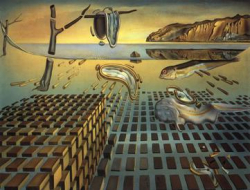 (This is a cross-post of a 3 Quarks Daily article I wrote last year.)
(This is a cross-post of a 3 Quarks Daily article I wrote last year.)
A few months ago I attended a rather peculiar seminar at MIT’s Department of Brain and Cognitive Sciences. A neuroscientist colleague of mine named Robert Ajemian had invited an unusual speaker: a man named Jim Karol, who was billed as having the world’s best memory. According to his website, his abilities include “knowing over 80,000 zip codes, thousands of digits of Pi, the Scrabble dictionary, sports almanacs, MEDICAL journals, and thousands of other facts.” He has memorized the day of the week for every date stretching back to 1AD. And his abilities are not simply matter of superhuman willingness to spend hours memorizing lists. He can add new items to his memory rapidly, on the fly. After a quick look at a deck of cards, he can recall perfectly the order in which they were shuffled. I witnessed him do this last ‘trick’, as well as a few others, so I can testify that his abilities are truly extraordinary [1].
 Just came across a nice little article by Ed Yong on how the two major phases of sleep — REM and slow-wave sleep — might contribute to creativity. These ideas have been floating around for a while, but it’s nice to see them in a pop sci article.
Just came across a nice little article by Ed Yong on how the two major phases of sleep — REM and slow-wave sleep — might contribute to creativity. These ideas have been floating around for a while, but it’s nice to see them in a pop sci article.